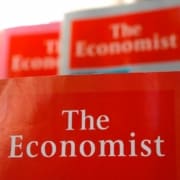Survey: Business Leaders See Ethics as a Competitive Advantage

ESG is turning out to be an abbreviation full of potential. Not only has nature’s climate emergency thrown environmental, social and governance issues under a global spotlight, but a pandemic and public health crisis has made the need for business to pay attention to its people and social issues impossible to ignore.
Any focus on governance needs an ethical lens, requiring consideration of an issue from many different perspectives and values to help leadership towards decisions. It is unsurprising then, that a global study of 750 companies finds business leaders bullish “as never before” about the role of good ethical judgement in ensuring that their companies thrive. Translating that judgement into comparative advantage however, is taking them into uncharted territory amid economic challenges, the rise of new business models and the growing empowerment and shifting values among their stakeholders.
Businesses are finding that corporate “value washing”—the values equivalent of greenwashing—just does not work with a cynical and better informed public.
Ethics as fundamental corporate infrastructure is hailed by business leadership in The Ethics Study 2021, compiled by Principia Advisory in partnership with Clifford Chance, the International Chamber of Commerce, INvolve, GlobeScan and the Institute of Business Ethics. Its research finds 92 percent of leaders believing that companies should follow their own values and principles, even when it means sacrificing financial returns.
Some 84 percent of leaders believe that integrating ethics—building capabilities that enable them to pursue a purpose beyond profit and to embed values and principles into decision making—will be a route to competitive advantage in their industry. But fewer than half are actually measuring performance beyond traditional financial metrics, either company-wide (42 percent) or for individual employees (46 percent).
“The leaders we spoke with are clear that simply following the letter of the law is no longer sufficient. Radical transparency is putting pressure on companies to show how their values make a difference to the decisions they make, and we have seen numerous examples where poor ethical judgement has led to devastating consequences,” said David Rodin, CEO and Founder of Principia Advisory, an advisory firm on organizational ethics.
In charting the gap between a growing conviction among business leaders of the importance of following clearly articulated business values and their follow-through, the study points to many necessary courses of action. It highlights 10 areas that leaders identify as essential to being an ethical business, including taking public action to address societal injustice, and taking a public position on controversial societal issues.
Business leaders, according to the study, “feel a growing responsibility to exert their influence on broader societal challenges, from climate change to deforestation to racial and gender equality.” Where companies historically have preferred to remain above the fray, often to avoid alienating particular customer groups, “around two-thirds of leaders are now more comfortable asserting their company’s own values and principles through proactive contribution to public debate—and see it as a hallmark of an ethical company,” it adds.
One of the most interesting aspects of the interviews with 80 senior leaders of top global brands is the revelation that many corporate chiefs are uncertain of the scope of their own role as ethical leaders. It suggests that this aspect of leadership has been historically slow to evolve as a gold standard. It also correlates with the lack of gender diversity at the top of global leadership across the public and private sectors. In the pandemic, female leadership has stood out in governments and across science, research, and healthcare. Diversity and inclusion are integral parts of all ethical leadership, and critical for its comparative advantage and success.
On the subject of being uncomfortable with the ethical responsibility of leadership, the 2021 Edelman Trust Barometer found that 86 percent of people surveyed worldwide now expect CEOs to speak out on controversial social issues, with almost two-thirds demanding that business leaders take the lead, rather than waiting for governments to act.
Subscribe to the Ethical Systems newsletter
The Ethics Study 2021 reveals 62 percent of business leaders saying that their businesses should take a public position on controversial societal issues. This rises to 68 percent when asked whether their businesses should take public action to address societal injustices, something we are likely to see more of as the fallout from a year of pandemic lockdowns continues.
“Leaders have spent the last decade making ambitious commitments to more responsible and sustainable business but recognize that, in the face of growing urgency and rising impatience from society, they must translate aspiration into action,” said Rob Hayward, who led the study’s research for Principia. “Crucially, they are no longer waiting for unambiguous signals from governments, regulators, consumers or investors: they know that integrating ethics into the core of their business will be essential to future success.”
The recent signs are also that the U.K government is mindful of both the growing importance of ESG amid the economic challenges of building back better after the pandemic. Workers as ethical stakeholders are being empowered. The Financial Conduct Authority has been investing in its resources to encourage and support whistleblowers in the financial services industry, and recently launched an “In confidence, with confidence” campaign to embolden people to report wrongdoing.
The U.K. government’s consultation will last for 16 weeks, until the first week in July 2021, but it has already sparked considerable debate. Some mainstream business media began its coverage in response with a projection of the cost to business, and a nod to ESG concerns. But a shift in values, and an ensuing shift in strategic direction will always have a monetary cost—the real cost depends on how far ahead you place the time frame. We have also never faced a climate emergency like this, or a pandemic in such an interconnected world with individual technological empowerment bringing stakeholders together across generations.
“Leading businesses across the world increasingly recognize that having a clear purpose and ethical decision-making must be at the core of what they do,” said Jeroen Ouewehand, global senior partner at Clifford Chance. “Building the infrastructure, systems and processes in support of that goal and, in some instances, embedding material cultural change is not easy. The good news is that expectations across the stakeholder universe of regulators, the investment community and workforce are increasingly aligned, and this is a powerful enabler for driving this change.”
This alignment has been clear in the investor community and its focus on ESG issues, going back to 2013 when I began contributing to Forbes on a page under the leadership banner, and the four year archive is still online. Investor activism has increased substantially since then, as has evidence of businesses as agents for change in the community. Businesses are also finding that corporate “value washing”—the values equivalent of greenwashing—just does not work with a cynical and better informed public, whether it is on climate action or diversity and inclusion. Their speed of reaction when publicly called out speaks volumes.
“Only in a crisis can you check the ethical heartbeat of a company,” said Alison Tarditi, Chief Investment Officer for Australia’s Commonwealth Superannuation Corporation, providing an investor perspective on ethical leadership.
There is a great deal of food for thought in this global study. In an era of radical transparency, “keeping a sense of purpose alive is the key,” said Alan Jope, CEO, Unilever. “Most of us have articulated our purpose, but that’s not the question. The question is whether it is alive and well and affecting decisions.”
There are also businesses that have not articulated their purpose within the context of the new realities we live in today. BT, Britain’s biggest telecoms group, is being accused by unions of attempting to bribe members not to vote for strike action after just announcing a £1,500 bonus to almost 60,000 workers. It is facing its first national strike in more than 30 years. BT, of course, is the same company that had a whopping 36 percent gap between its pension obligations and the resources set aside to fund them in 2016 and around £50 billion ($62.4 billion) of underlying pension liabilities, the largest of any U.K. company at that time, as I reported on pensions being a corporate governance issue. Its pension deficit continues to hit the news, with the latest here.
Pensions are also about workers, the people who give their skill and time to a business. Everywhere on the horizon there are warning signs of the potency of an abbreviation that has been bandied about for years—for business leaders, ESG is about the ethical dangers of ignoring the human in human capital, and the values which make us human.
Dina Medland is a long-time journalist and independent commentator with a mission to provoke thought around responsible capitalism in changing times. She writes about the need for better corporate governance and a return to the value of an ethical focus for better, sustainable businesses on Board Talk. Follow her on Twitter @dinamedland.
This piece was originally published on Board Talk and is reprinted with permission.







